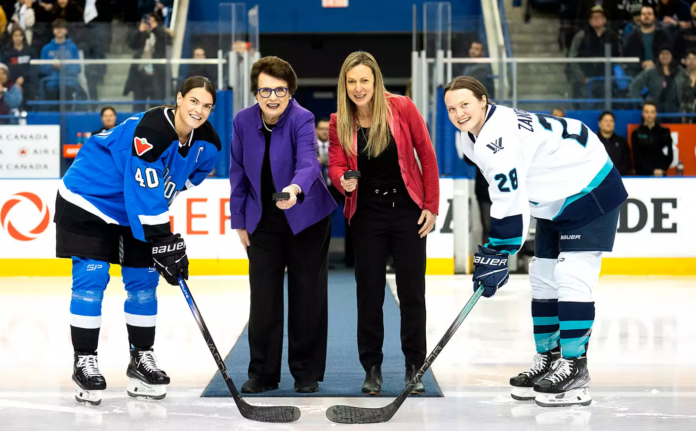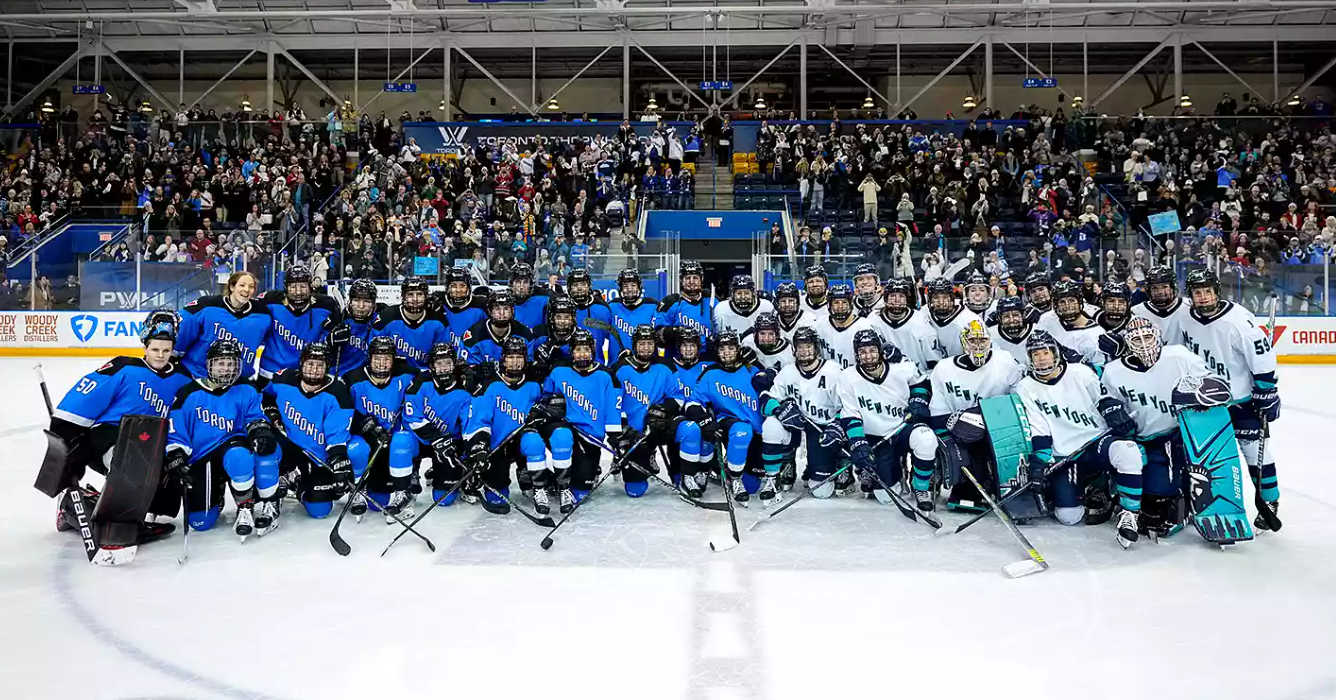
On Jan. 1, the inaugural game of the Professional Women’s Hockey League (PWHL) took place in front of a sold-out crowd at the Mattamy Athletic Centre in Toronto. During that game, New York took on Toronto, ending in a 3-0 victory for New York.
Ella Shelton, a Canadian-born defender for PWHL New York, scored the first goal in league history. Corinne Schroeder, goaltender for New York, stopped all twenty-nine shots she faced to record the first shutout in PWHL history.
Created in July 2023 and backed by tennis legend Billie Jean King and Mark Walter, the PWHL is vastly different from the female leagues of the past.
The league has six teams that play 24 regular season games with some unique rules that do not exist in other major hockey leagues. For instance, teams receive three points for a regulation win, two points for an overtime or shootout win and one point for an overtime or shootout loss, similar to the point system used in tournaments governed by the International Ice Hockey Federation. Additionally, if a team scores a goal while on the penalty kill, the penalty is over. This rule is also known as the “jailbreak rule.”
The main difference with the PWHL is that it is the first professional female hockey league where the best female hockey players receive a respectable salary. For example, players like Marie-Philip Poulin, “captain clutch” of Team Canada and Hilary Knight, captain of Team USA, get to face off against each other multiple times a season, instead of occasionally in international competition.
The optimism surrounding the historic and groundbreaking league has even spread to St. Thomas University such as Payton Jacobs, a second-year defender on the STU women’s hockey team from Ottawa.
“I thought [the league] was a great opportunity for women and I thought it was the most exciting thing ever because we finally got a women’s NHL,” Jacobs said.
“Women finally have something to look forward to and work towards instead of after university just ending your career and now we can actually have the opportunity to continue.”

Jacobs also emphasized how having a league for women on the same scale as the NHL is of the utmost importance, citing how having the PWHL helps to create “equal rights” for both women and men.
“Men always look forward to making themselves money and [women], we just look forward to going to university and [playing] hockey, so we can keep playing the sport we love,” said Jacobs.
A shining example of a female player who, thanks to the PWHL, has the opportunity to play hockey after university is Taylor Heise. Heise recently graduated from the University of Minnesota and was chosen first overall in the league’s inaugural draft by PWHL Minnesota.
Sarah Hilworth, coach of the UNB REDS women’s hockey team, echoed the same sentiments and reaction to the new female-driven league as Jacobs, saying that she was excited.
“It’s about time that there was one league and we were able to see all the best players in the world play under one umbrella,” said Hilworth.
Hilworth also cited the unknowns that surround the new league since other female-driven leagues were attempted before but ultimately were not a “viable option,” as the players tried to balance hockey with everything else in their lives.
“Trying to see these players as just athletes, I think there’s a lot of excitement and a lot of unknown.”
She said many times coaches will take clips from the NHL, National Collegiate Athletic Association or even from their own league, but now she has professional examples of what she would like her players to do.
“It’s exciting for us to be able to capture those moments and be able to show our players and be able to use our capacity here at UNB as a development program,” said Hilworth. “See our players just getting better and hope for them to continue wanting to strive to be at that next level.”
Both Jacobs and Hilworth are watching the new league closely. While Jacobs is a fan of PWHL Ottawa, her hometown team, Hilworth is a fan of New York, as she was coached by head coach Howie Draper when she played hockey for the University of Alberta Golden Bears.
“I have been a fan since day one,” said Hilworth. “[It has] been awesome watching [the league] get off the ground and seeing a lot of great people involved with the programs.”
